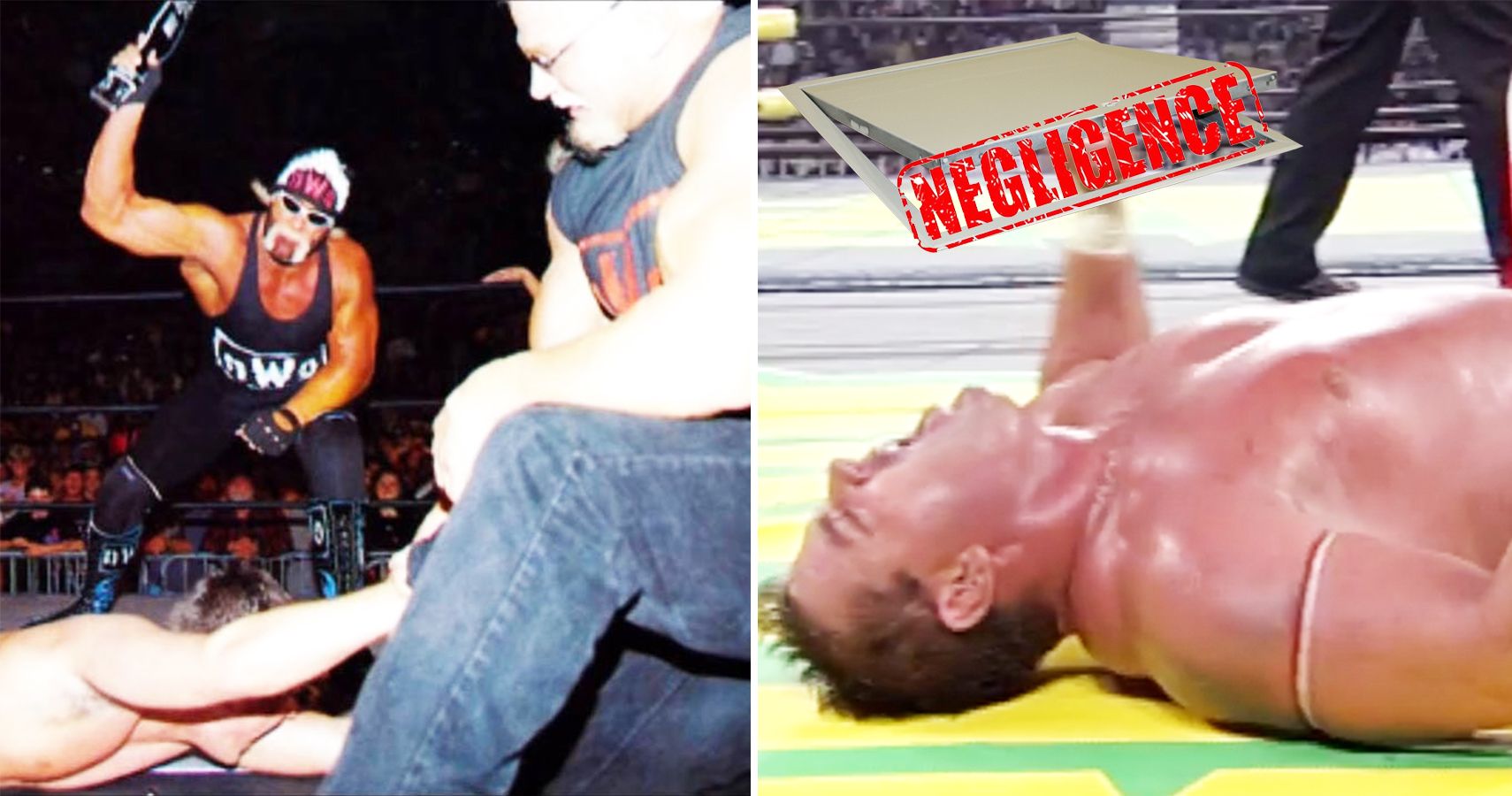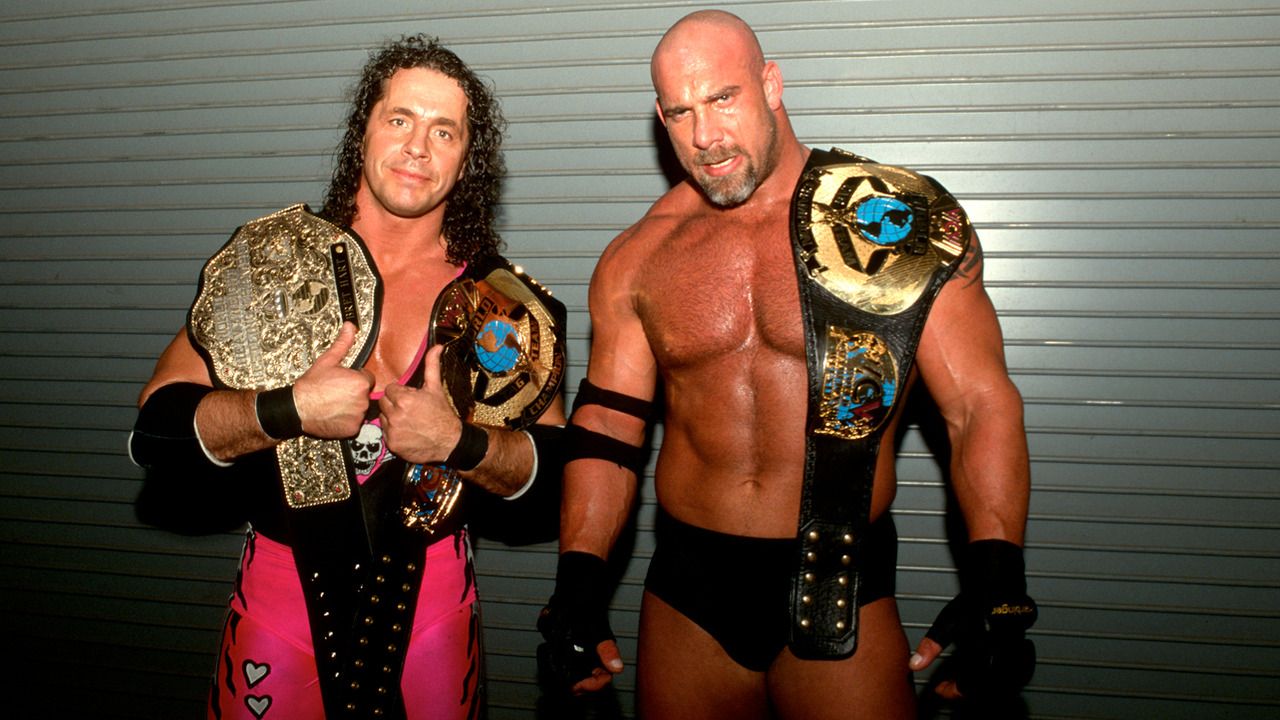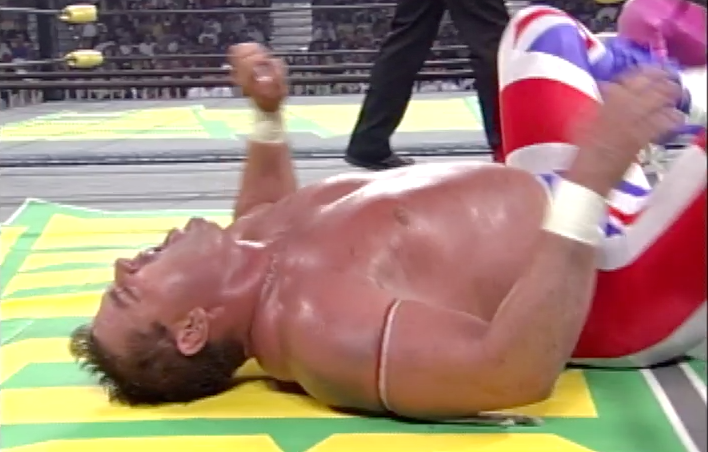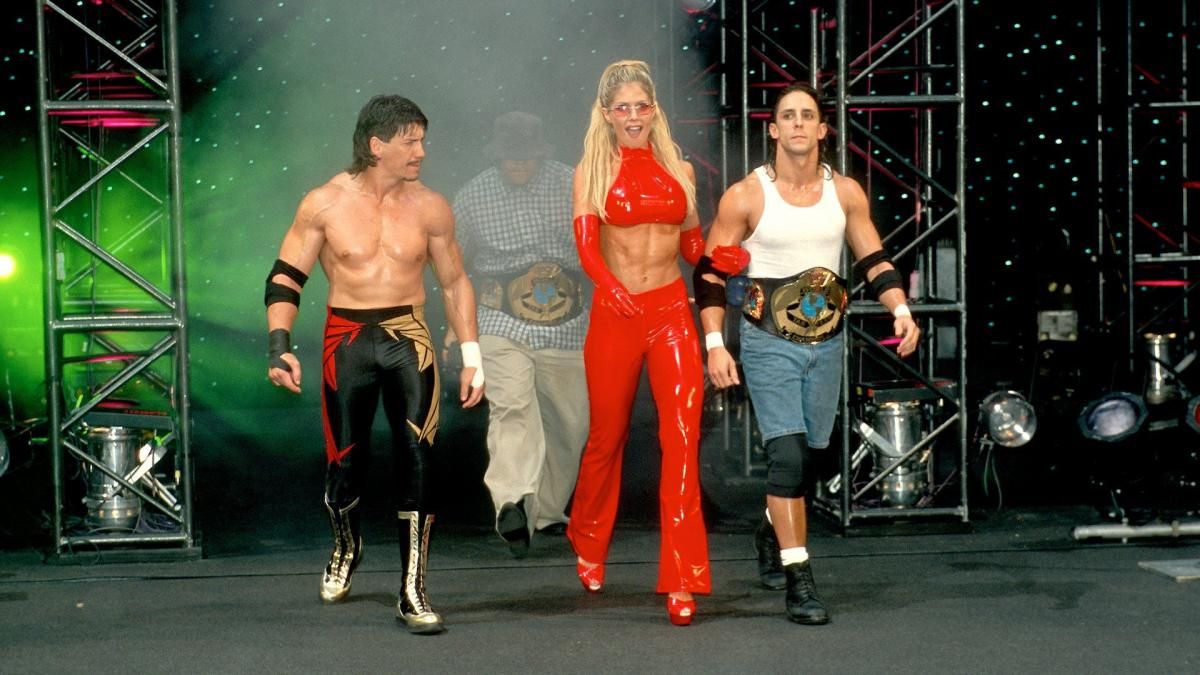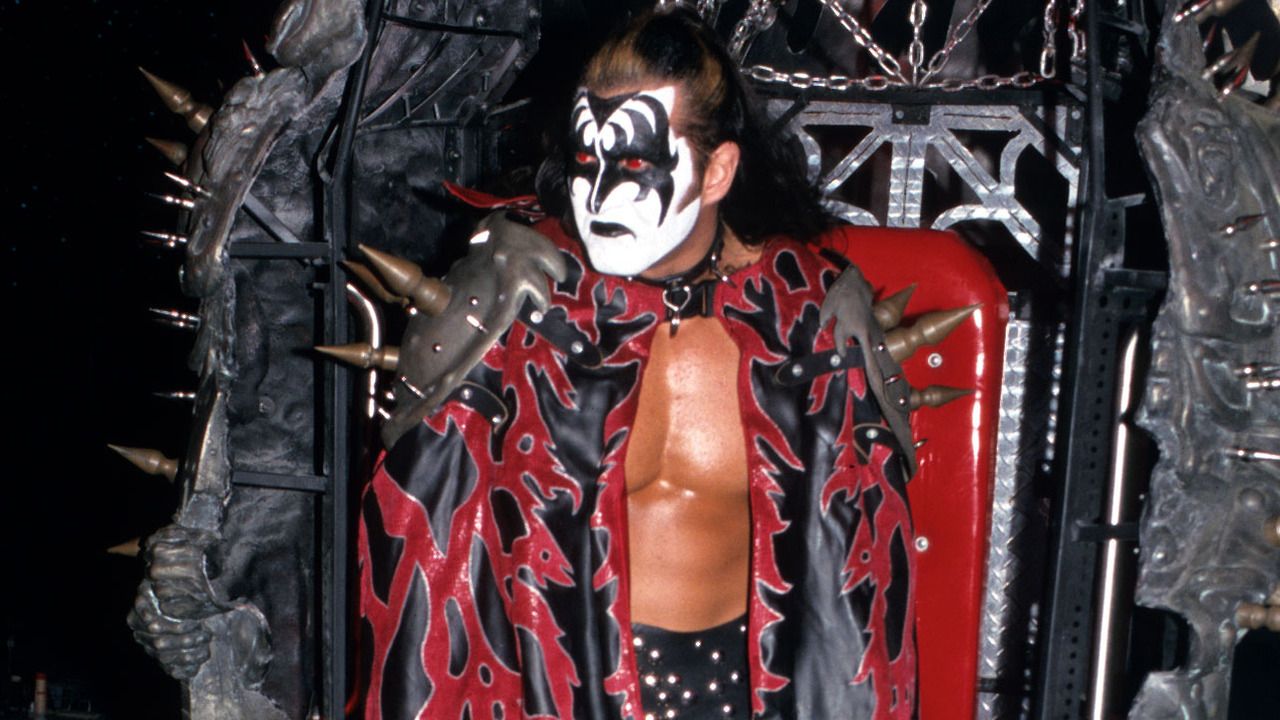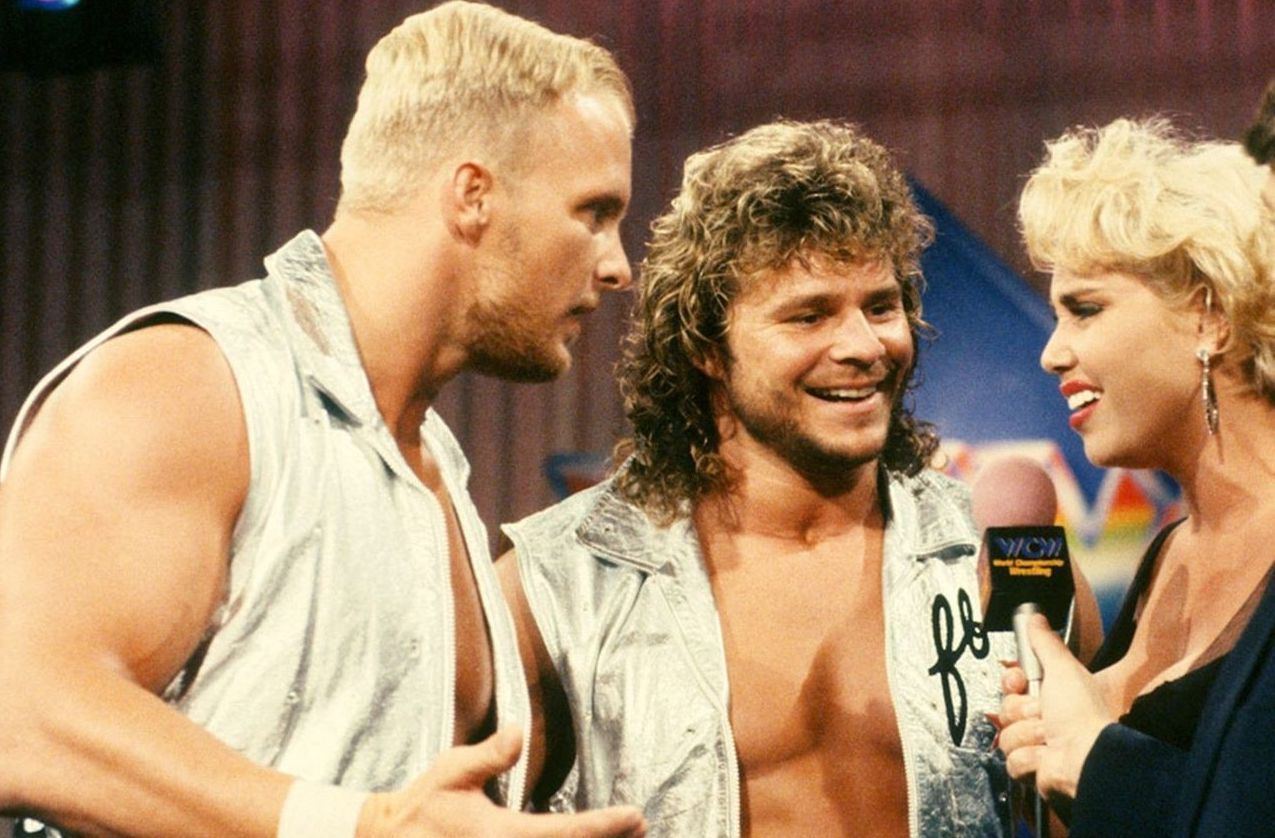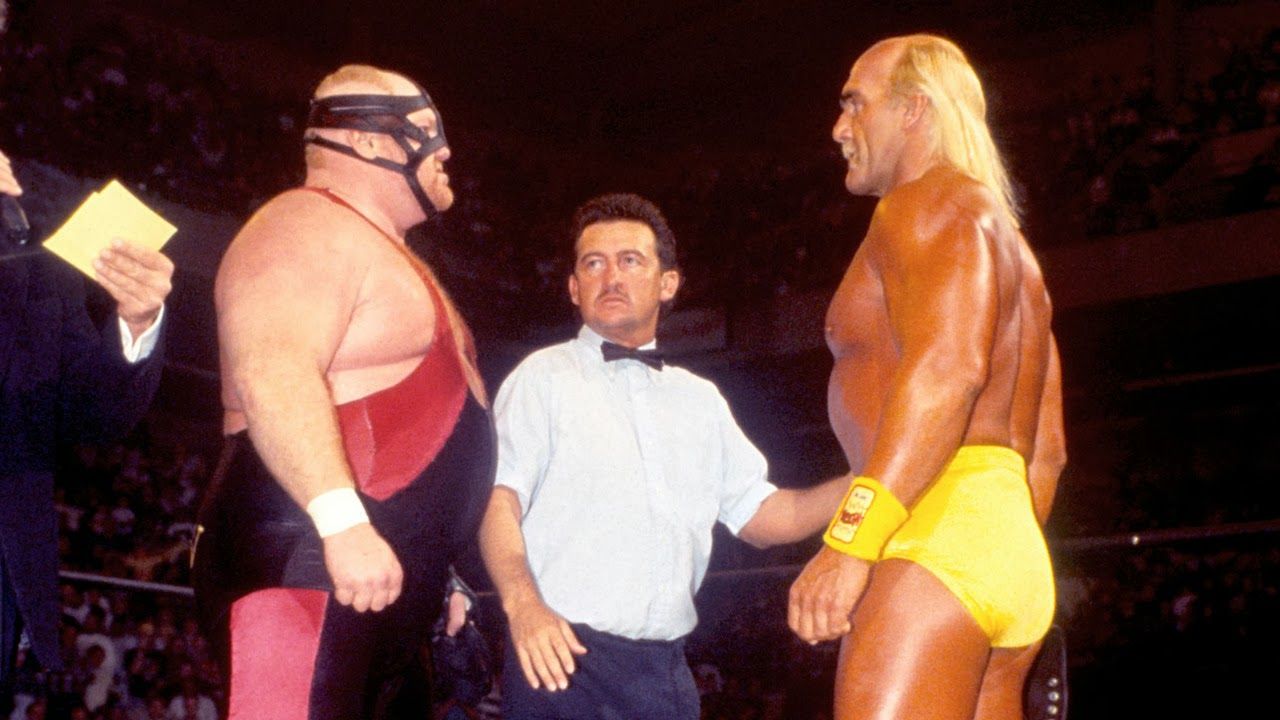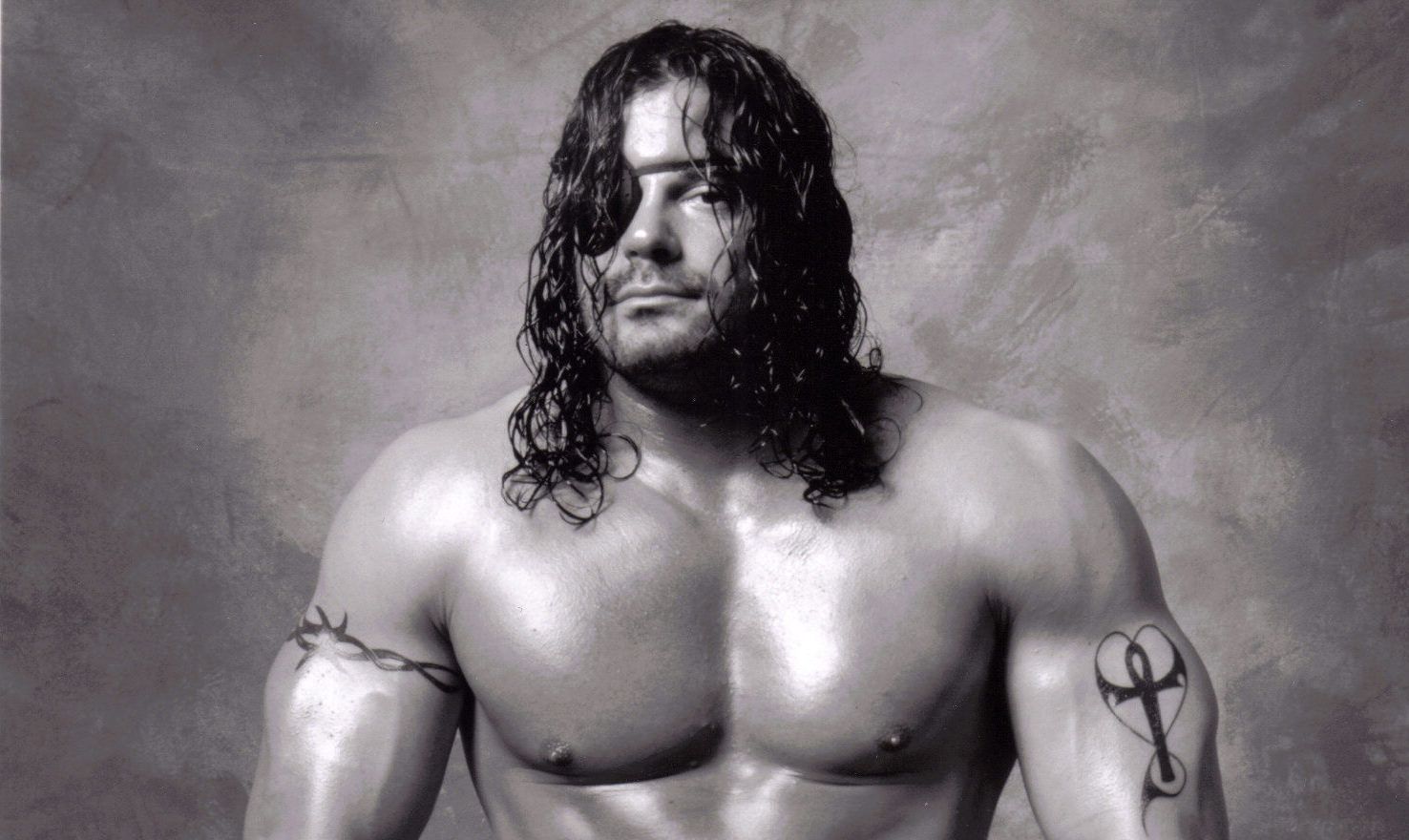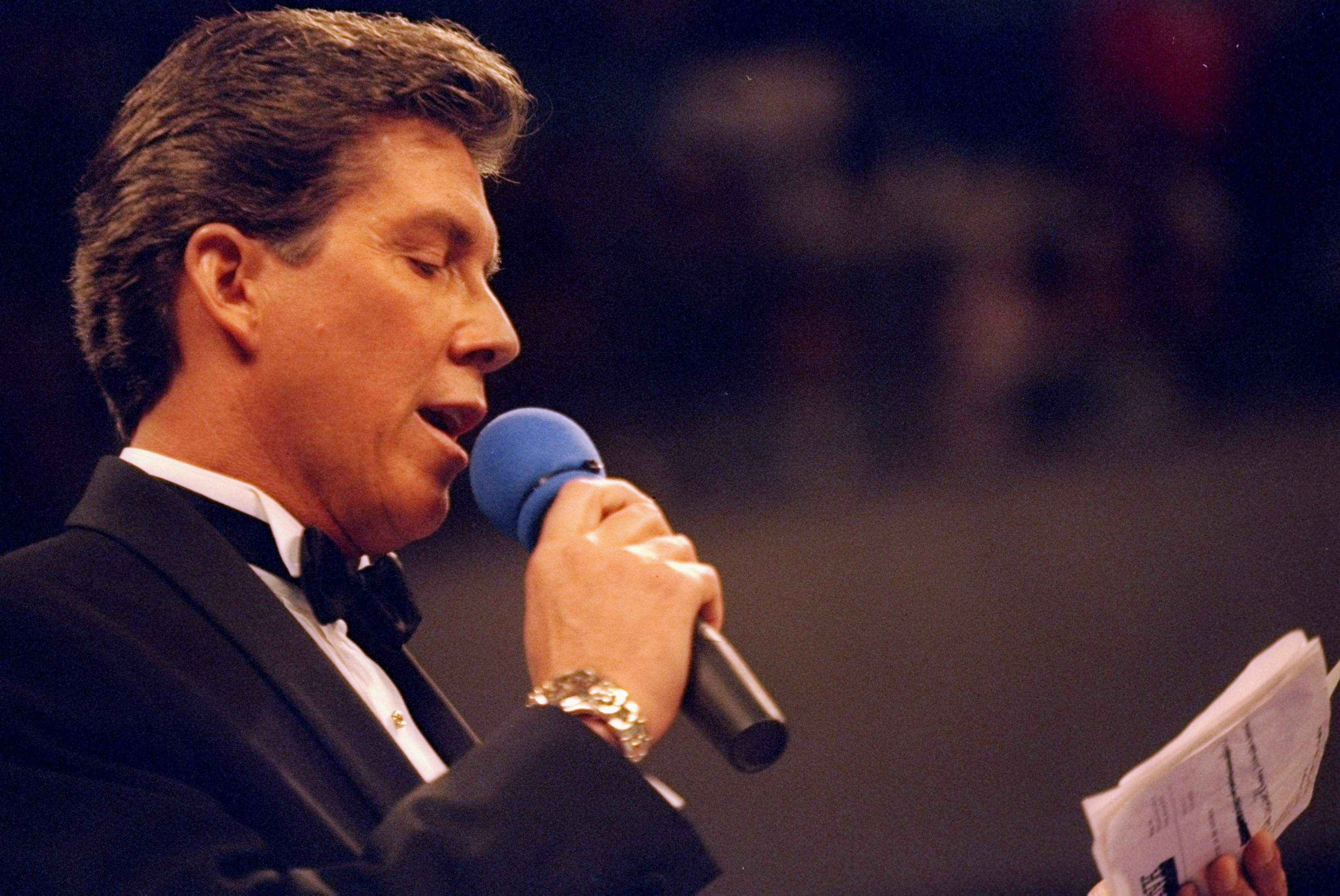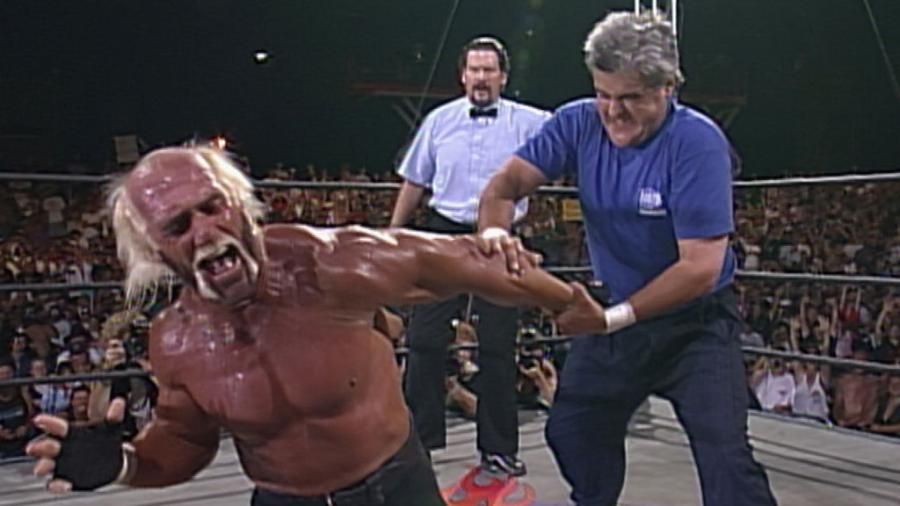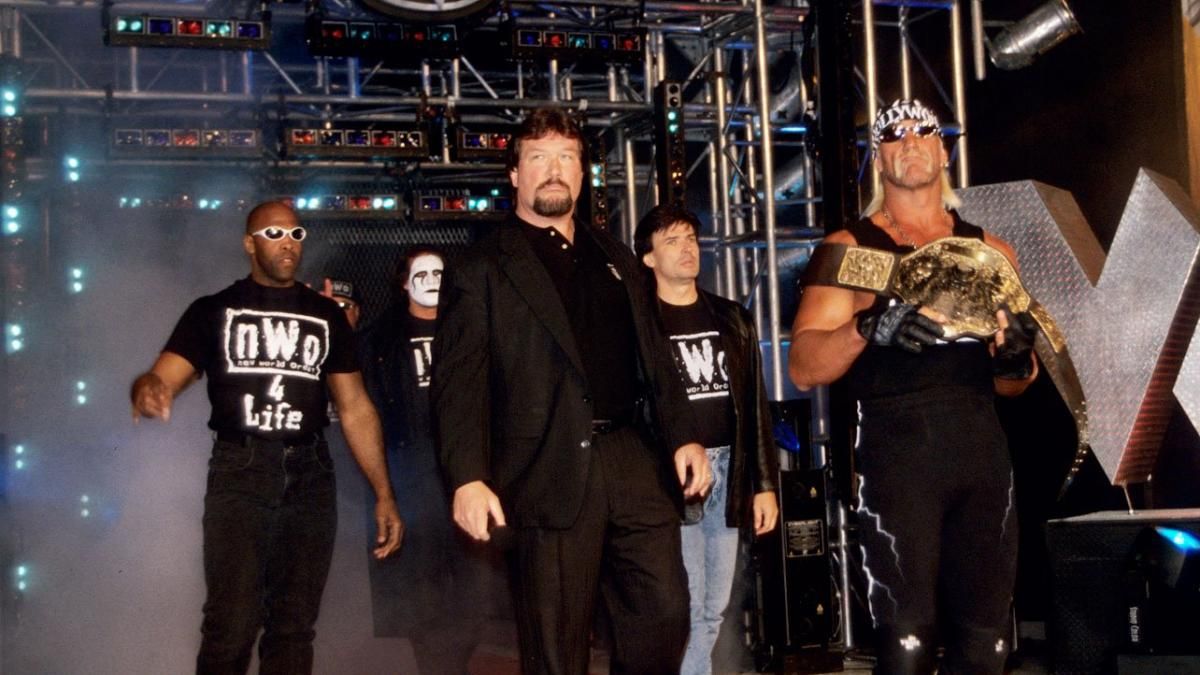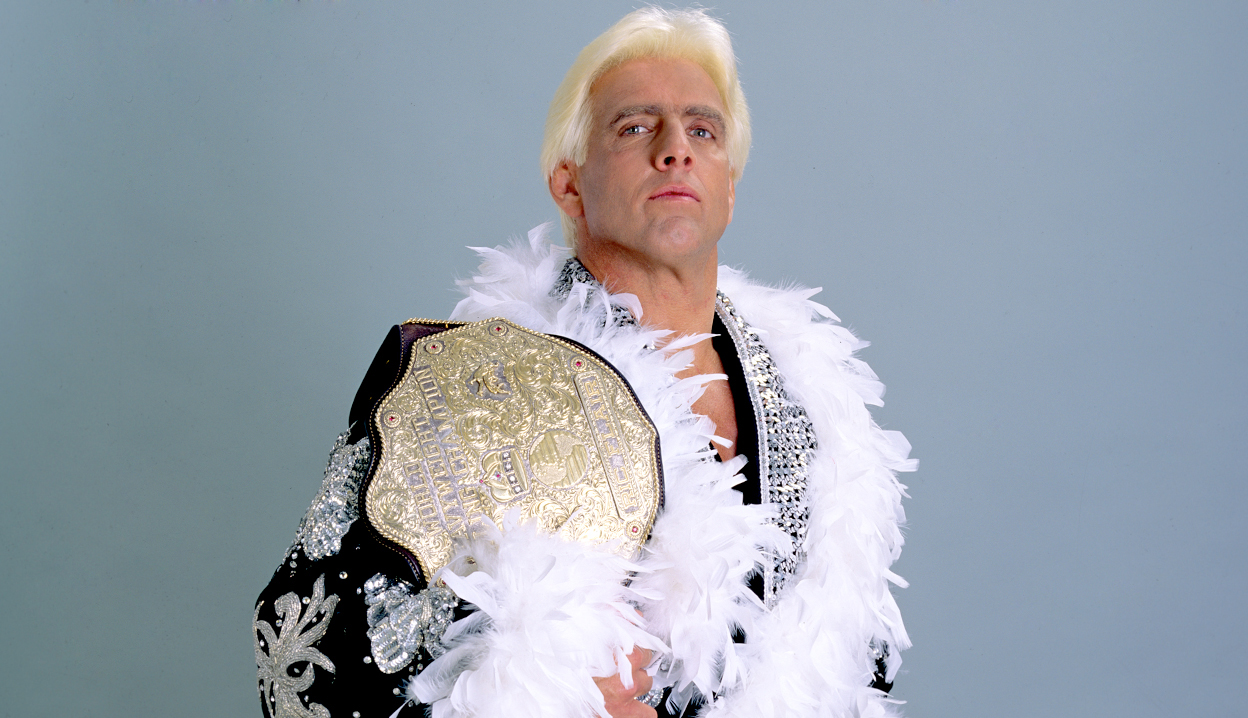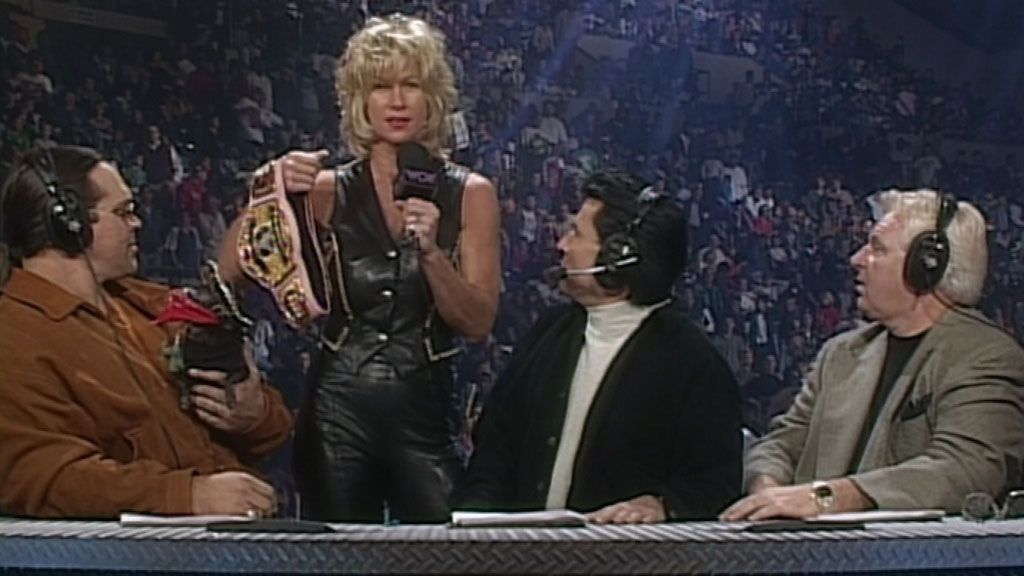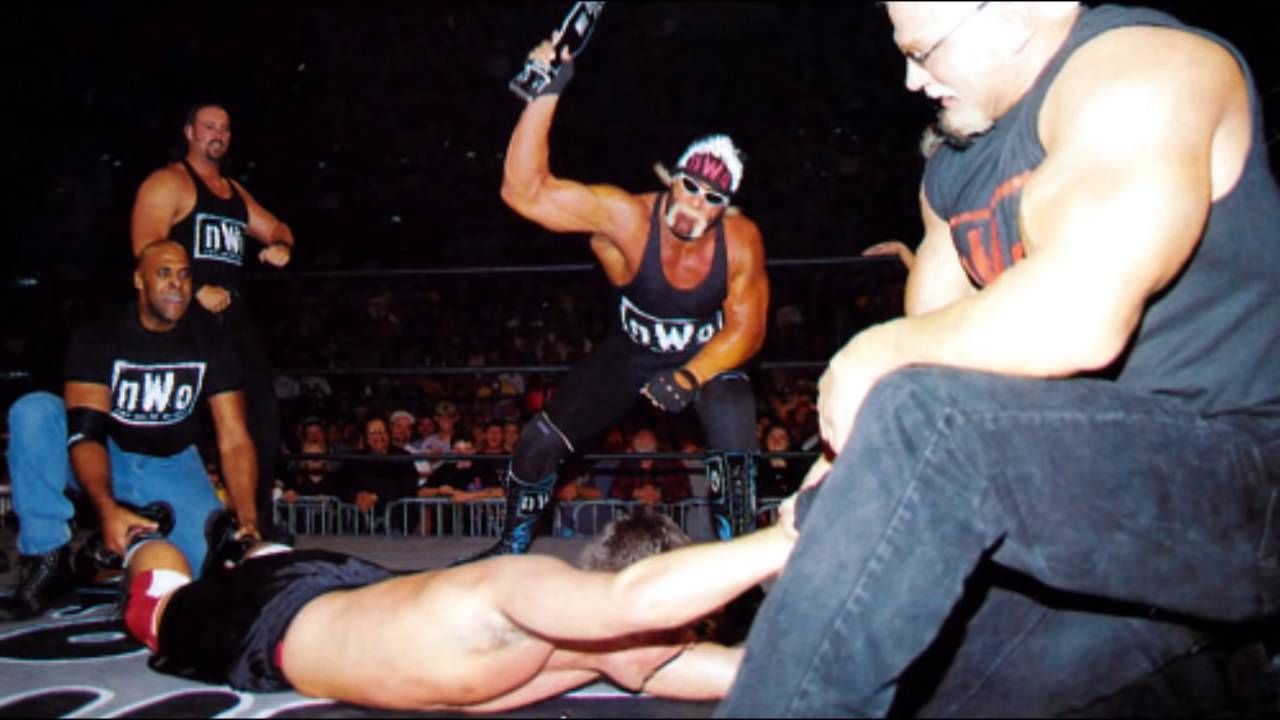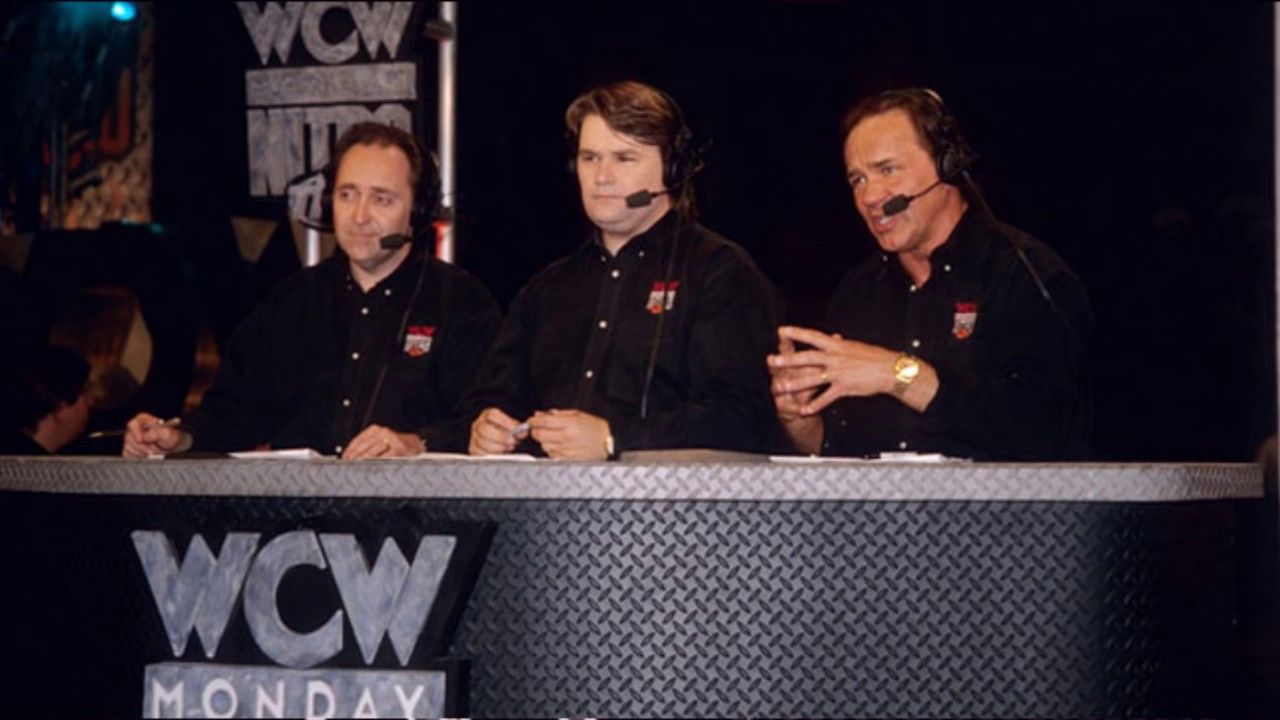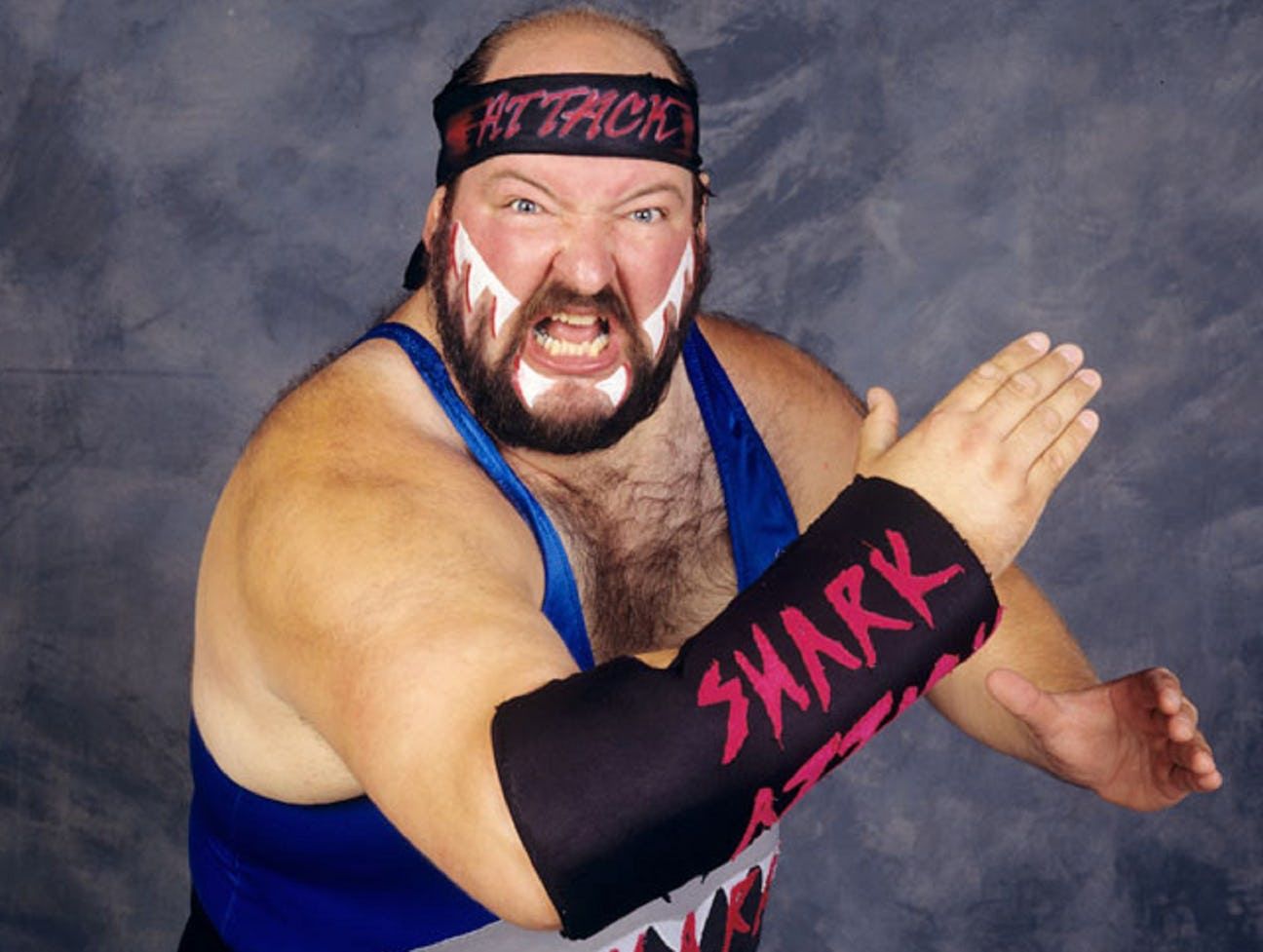Throughout the 1990s and up to 2001, WCW was a pretty clear cut number two wrestling promotion relative WWE. There was even a time during the so called Monday Night War, when WCW’s Nitro aired directly opposite WWE’s Raw, that it could be argued WCW was number one, at least in terms of viewership and revenue.
Despite having been such a large and high profile company, and existing under the larger Turner empire, WCW’s operating practices were not always the most organized, clear, or even ethical. A number of past wrestlers, TV personalities, and backstage employees have suggested that the company had some uncomfortable truths attached to decisions made and ways of doing business. Additionally, there were some problematic goings on with the company that weren’t related to anyone’s decisions so much as happenstance or misunderstandings.
Over the years, WCW has become an easy target in ways that diminish the company’s historical importance and the things it did right. After all, this was the company that kept War Games alive for a national audience for over a decade, and featured the New World Order and the Four Horsemen. WCW gave us Sting, Goldberg, Booker T, and Scott Steiner as main event acts. The infusion of acts from Japan and Mexico—particularly in the Cruiserweight Division—were extremely influential. While WWE made the most of Chris Benoit, Eddie Guerrero, and Rey Mysterio’s potential, it was WCW that first signed them to truly national deals and set them up for bigger success down the road.
So, WCW is an example worth learning from, both for better and for worse. This article takes a look at fifteen despicable truths about what happened under the WCW banner, as revealed by former employees.
15 15. Bret Hart Was Denied His Insurance Pay Out
Bret Hart became one of the biggest stars in wrestling based on his work in WWE. He rose from the tag team ranks to being a top mid carder, to being a main event star who was particularly well received in international markets. In the end, he would defect to WCW when WWE couldn’t afford to pay out the contract originally signed with him, and after political differences surround real life rival Shawn Michaels undermined his long term prospects.
Hart’s WCW run was largely a disappointment. Hart places responsibility on an inept creative team. Eric Bischoff—part of that creative effort—claims Hart was a shell of his former self. In a capper to a sad run, Hart suffered a stiff kick to the head from Goldberg that concussed him. Though Hart would, for a brief time, try to work through it, the injury led to the end of his full time wrestling career.
To pour some extra salt in Hart’s wounds, Lloyd’s of London initially refused to pay out his insurance funds. The company had felt scammed by other wrestlers with more spurious injuries and, in short, seemed to suspect Hart was faking that he was hurt. It would be a lengthy process before the Hitman got his just desserts.
14 14. The British Bulldog’s Career Was Ruined Out Of Negligence
Davey Boy Smith’s first run with WCW cast him as a main event level star, who feuded with Big Van Vader. When he came back in the late 1990s, he was in a far less featured spot. He’d largely come short as a top guy despite multiple pushes in WWE and WCW by that point, and so was cast as just another guy—a big name who wasn’t in any serious conversation for more than a mid card spot.
The degree to which WCW wasn’t concerned with Smith was crystal clear at Fall Brawl 1998. The War Games main event was to include a spot of The Ultimate Warrior magically appearing and disappearing from the ring, using a metal trap door built into the mat. The story goes that the company neglected to warn a number of other wrestlers about the trap door. Smith took the worst of it by taking a big back bump directly onto the door, badly injuring himself. While he would continue to wrestle for a time, by most accounts he was never the same after that totally avoidable fall.
13 13. Torrie Wilson Felt Manhandled By Trainers
Years after her retirement, Torrie Wilson gave an interview looking back on her work with WWE. She was very positive about the experience, to the surprise of some who suspected she might have felt marginalized as just a pretty face, used mostly for her sex appeal. Wilson was particularly inclined to praise WWE’s professionalism, citing that the trainers were very kind and patient, and that they kept her safe.
Wilson’s praise for WWE came in contrast to her thoughts about WCW, where she suggested the PowerPlant trainers took more liberties in getting rough with new recruits, including female performers. She didn’t get into specifics, and the distinction is all subject to Wilson’s opinions and memory. Just the same, there’s an implication that WCW personnel weren’t the most responsible in training women with no ring experience.
12 12. Managenent Promised KISS A PPV Main Event
Besides putting on a wrestling show, WCW had a history of trying to connect to pop culture and rope in celebrities to draw more mainstream attention. Among these moves was the choice to contract with the famous rock and roll band KISS.
The KISS deal saw the band perform live on Nitro, and also involved the introduction of The KISS Demon. The new character was originally attached to Brian Adams (best known as WWE’s Crush) before transitioning to Dale Torborg. A part of the deal was that The Demon would main event at least one WWE PPV, originally slated to be a New Year’s Eve special, before that was nixed from WCW’s schedule.
The Demon character failed to get over, and Torborg wasn’t prepared to turn in top level performances. As a bit of a cop out, WCW wound up marketing a “special main event” in name only, booking The Demon against Vampiro for SuperBrawl 2000. It was a main event in name only to fulfill the contractual obligation. Otherwise, it was a forgettable, middle of the card encounter, after which point WCW’s business with KISS was done.
11 11. Austin And Pillman Were Split Up For Getting Too Over
Steve Austin has spoken extensively about his run with WCW—everything from the highs of working with Ricky Steamboat to the lows of his unceremonious release via Fed-Ex. One of the more fascinating parts of that history was Austin’s time with The Hollywood Blonds, his tag team with Brian Pillman.
According to Austin, he’d been told he was getting lined up for an upper mid card run, managed by Harley Race, that might give way to a main event berth. Austin was surprised when Brian Pillman came up to him to start brainstorming about their new tag team. Austin had to track down someone from management to confirm that was the actual plan moving forward.
As fate would have it, Austin and Pillman would get the act over better than anyone expected. Rumor has it, they were broken up prematurely for getting too over and taking attention from acts WCW was more interested pushing.
10 10. Ric Flair Did The Job When Hogan And Vader Wouldn’t
WCW found itself in an awkward spot in the feud between Hulk Hogan and Big Van Vader. The intention seemed to be for Vader to play the role of a prototypical monster for The Hulkster to overcome. A combination of factors complicated that scenario. Hogan was far less over in mid-1990s WCW than he was in early 1990s WWE. Meanwhile Vader valued himself more for the world champion he had been just a year and half earlier.
While Hogan beat Vader at SuperBrawl 1995, WCW needed to be more creative to get Vader to do the honors again at the Uncensored PPV to follow. The progression involved Ric Flair returning from his kayfabe retirement and acting as Vader’s surrogate at the end of Vader and Hogan’s Strap Match. It was a nonsensical finish that seemed to satisfy Hogan and Vader enough for everyone to move on.
9 9. Scotty Riggs Got Screwed On His Last Contract Negotiation
Scotty Riggs was a solid enough utility player for WCW who worked with Marcus Alexander Bagwell as half of the American Males tag team, before becoming a part of Raven’s Flock. Riggs has spoken about his departure from the company in a few interviews. In particular, he cited that Eric Bischoff told him he was getting a very respectable deal in recognition of his loyal service to the company.
According to Riggs, the negotiations took a sharp turn less than a week later. Riggs claims he was told WCW was bringing back a number of more established talents. His new offer was a lot less generous than the one he was originally discussing, and based more on earning incentives than a strong base line salary. The failed deal gave way to Riggs leaving WCW on the whole.
8 8. Michael Buffer Was Paid More To Phone It In Than Any Other Ring Announcer
In its never ending efforts to appear big time, and throw money at problems, WCW invested a lot of money in the 1990s into paying for Michael Buffer to serve as the ring announcer for PPV main events, and even the final matches of some Clash of the Champions shows. While Buffer was famous and his voice did, at times, succeed in adding some extra gravitas to big shows, he didn’t always put his best foot forward for WCW bookings.
Buffer was notorious for making errors in the names of wrestlers, championships or match types that only reinforced he wasn’t a fan or invested in wrestling beyond the payday it offered him. Buffer’s lackluster performances for big paychecks were especially insulting to the full time ring announcing crew, which made far less per appearances while working harder.
7 7. Jay Leno Was Brought In Just For Photo Ops
Road Wild featured a very unusual attraction of a match. WCW had been all too eager to make use of celebrities in the past, most often leaning on pro athletes like Karl Malone, Dennis Rodman, or Kevin Green. This show, however, saw non other than late night talk show host Jay Leno step in the ring.
Leno teamed with Diamond Dallas Page against the pair of Hollywood Hogan and Eric Bischoff. Careful observers may be puzzled by the match’s opening moments. First of all, Leno engaged with Hogan in an unlikely pairing to go at it. Secondly, Leno more than held his own despite the tremendous size, strength, and experience disadvantage. Most suspiciously of all, Leno actually controlled Hogan with a wristlock for a lengthy period of time. A number of wrestlers have spoken on that spot years later, citing that it was purely done for publicity purposes. Sure enough, pictures of Leno catching Hogan in a wristlock were all over the media in the days to follow.
6 6. Turner Executives Didn’t Know When Nitro Aired
Eric Bischoff is generally thought of as the corporate face of WCW during its heyday, and tends to get both credited for some of the company’s greatest successes and blamed for some of its worst shortcomings. Bischoff has made no bones about the fact that he was working within a corporate structure. While he often suggests that he was good at walking in both the wrestling and big business worlds, it’s clear that he didn’t entirely get along with Turner management.
Bischoff has cited in a number of interviews a point at which executives called for big changes to his show. As a test, Bischoff asked what night Nitro aired, and was unsurprised to find no one could answer. The experiment confirmed that no higher ups were invested in WCW enough to keep up on anything about the show—even when it was on.
5 5. Ric Flair Was To Be Rebranded As Spartacus
WCW went under a variety of different banners of leadership over the years, and that volatile history reaches before the best documented Monday Night War era. Among the worst was Jim Herd, who had no real wrestling background when Turner executives gave him the reins of WCW.
Among Herd’s most famously bad concepts was to rebrand Ric Flair in the gimmick of Spartacus. Herd was purportedly convinced that the way to compete with WWE was to embrace gimmicks more in the WWE style, moving away from selling wrestlers as athletes in favor promoting outlandish characters.
Flair was offended by the idea which he felt undermined the legacy he had established. The culture Herd instilled at the time was a big part of what led Flair to jump to WWE in late 1991.
4 4. Madusa Was Misled About Her Role
Madusa made one of wrestling’s most famous defections when she headed to WCW with the WWE Women’s Championship in hand. She’d been marginalized into oblivion in WWE, with the company trimming away at the women’s division due to budget cuts, before shutting it down altogether. She went to WCW on the promise of greater opportunity.
Early in Maudusa’s Monday Night War era WCW run, she did have some good matches with strong opponents. That dynamic quickly gave way, however, to her being used as eye candy—a role she didn’t feel entirely comfortable. As a serious and talented athlete, a valet spot wasn’t just a fit and she’d ultimately felt the most of that WCW run as an odd ball addition to the Cruiserweight Division.
3 3. Hulk Hogan Took Liberties With David Flair
Today, David Flair is remembered as Ric Flair’s son and a wrestler—albeit not a very good wrestler. You can’t really blame David for his shortcomings in the ring, but he was thrust into a major television role with WCW before he’d been properly trained. Just the same, he’d go on to a dubious legacy as a guy who got more screen time and opportunities than a fair number of more legitimate pro wrestlers on the WCW roster.
Some of David’s first appearances focused on his lack of experience, though, and weren’t exactly the envy of the locker room. One saw him the victim of a New World Order beat down, as the heels in black and white mauled David to get at his father. That included Hulk Hogan whipping him with a weight belt. According to Ric, Hogan was only supposed to take three or four shots. Whether it was a rib, a shot at the Flair family, or an effort to test the youngster, Hogan whipped him well over a dozen times instead. In Ric’s book, he wrote he’d never forgive Hogan for it, though the two do seem to have put it behind them since.
2 2. Eric Bischoff Directed Tony Schiavone To Bury Mick Foley
The night Mick Foley won his first world championship has gone down in wrestling infamy. The win itself was a fun one, and arguably made up one of the greatest moments in Raw history. However, it comes with the odd and mean spirited choice for WCW to not only spoil that it was going to happen, but make light of Foley being cast as a world champion.
Tony Schiavone was the one to deliver the news, saying over Nitro play-by-play that the wrestler formerly known as Cactus Jack would win and sarcastically suggesting, “that’ll put some butts in seats.” However, Schiavone, Foley, and Eric Bischoff have all confirmed that this was not Schiavone’s choice, but rather his response to a directive from Bischoff. Of course, the classless move would backfire as viewers turned to Raw in droves to catch the big win that they actually were excited to see.
1 1. John Tenta Was Persuaded To Change His Tattoo For a Short Term Gimmick
John Tenta is best known to wrestling fans as Earthquake, though he’d also wrestle in WWE as Golga, and for WCW as Avalanche—a member of the Three Faces of Fear, and The Shark as part of the Dungeon of Doom. As he made the transition to playing The Shark, the big man went so far as to have his tiger tattoo on his left arm redone to portray a shark instead.
To be fair, Tenta has stated in interviews that the choice was his own and no one at WCW made him do it. Still, the gimmick change that persuaded him to alter his tattoo was a both a little silly and almost comically short lived for having made a life change. In under a year, he was gimmick-less, going by his legal name and even dismissing his old character work on air in a famous promo.

